Elena McGrath: Granular study of the effects of the revolution on the mining site of Corocoro (La Paz)
This week, I want to invite you listen to Elena McGrath's take on the Bolivian Revolution. I enjoyed learning about her research and Elena's granular study of the effects of the revolution on the mining site of Corocoro (La Paz).
Elena McGrath is an assistant professor at Union College. Her work focuses on revolutionary movements, race, gender, and natural resources in Latin America, with an emphasis on the Bolivian Andes. They seek to understand how culture and material conditions create revolutions. Her fieldwork concentrated on the mining town of Coro-coro, a mining center in La Paz, close to the Chilean border. In this interview, Elena helps us understand how the lives of mine workers and their families changed after the revolution. Elena demonstrates that the revolution brought the mine workers and their families an unprecedented sense of citizenship that did not limit to the right to vote but also to the right to education, health, and social security linked to their work in the mines. In this way, Elena shows us the concrete ways in which the revolution transformed the lives of the mine workers.
Working with Primary Sources
Elena McGrath’s research question is: what changed and for whom after the 1952 revolution? To answer this question, Elena reviewed hundreds of telegrams between the mining town of Corocoro and the city of La Paz, Bolivia’s political capital. This telegram, sent a few days after the revolution, bears the signature of Mario Duran, who was the secretary general of the Mining Union in 1952. Duran calls himself municipal mayor, and addresses the Minister of Mines, Juan Lechin Oquendo pledging support to the government. This brief document helps to trace what happened in places like Corocoro during the revolution, how real power was seized and how it was negotiated.
The next set of documents are excerpts from a legal dispute over child support between Nicolás Alanoca, a mine worker, and the family of the woman he left pregnant in the community of Khari Baja. This case shows the effect of being a mine worker after 1952, that is, after the revolutionary government nationalized the mines. The state apparatus and its pronatalist concerns came into action, and the law forced Nicolás Alanoca to pay child support.
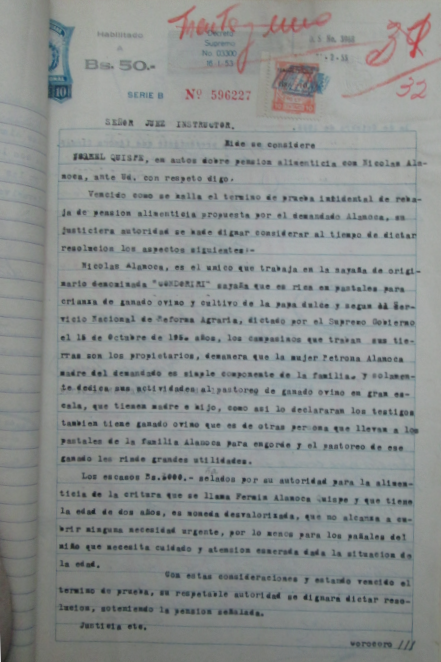
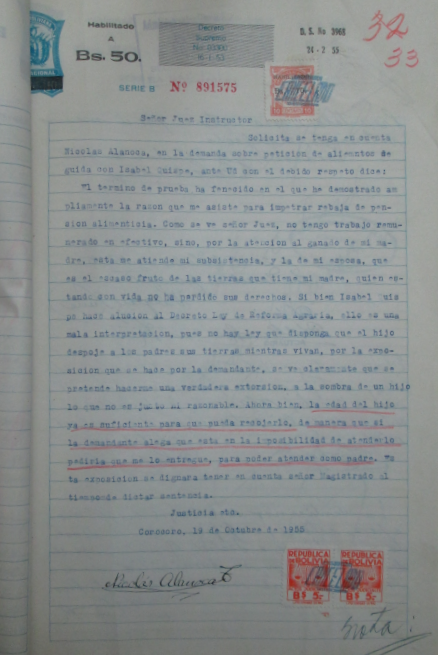
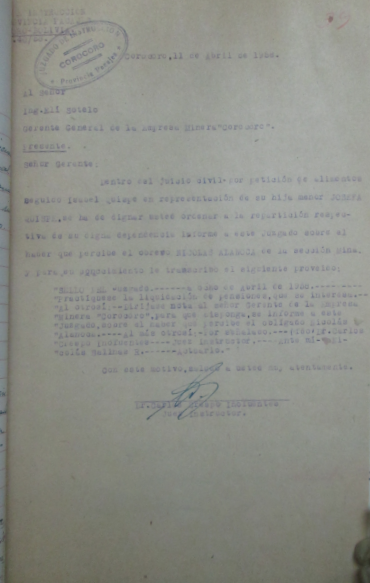
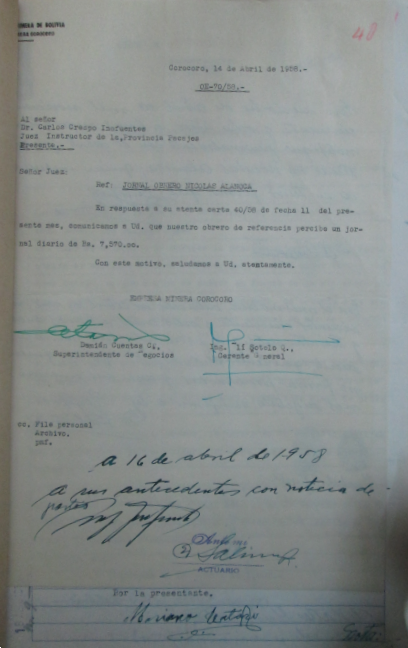
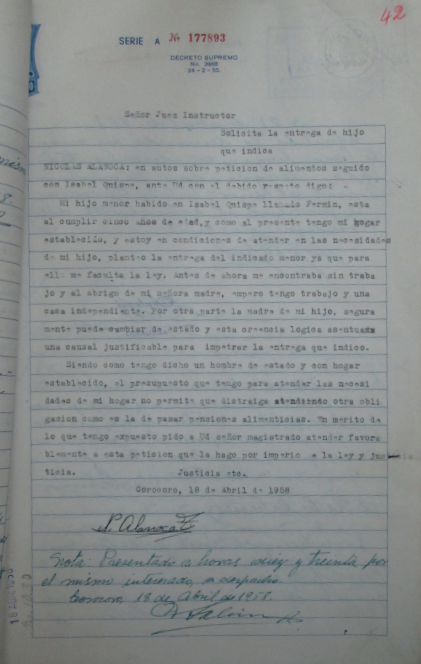
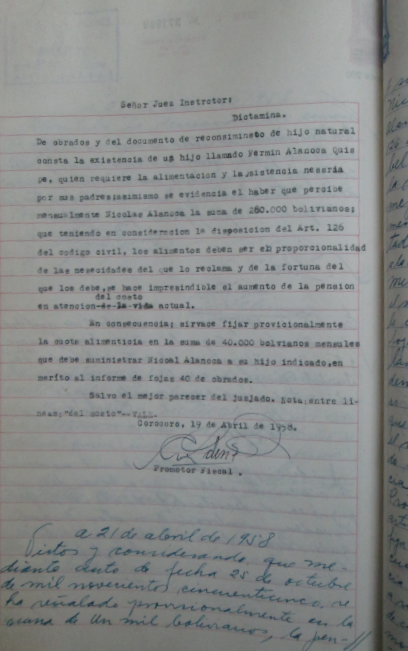
The following images are of Elena McGrath’s fieldwork in the mining town of Coro-coro.
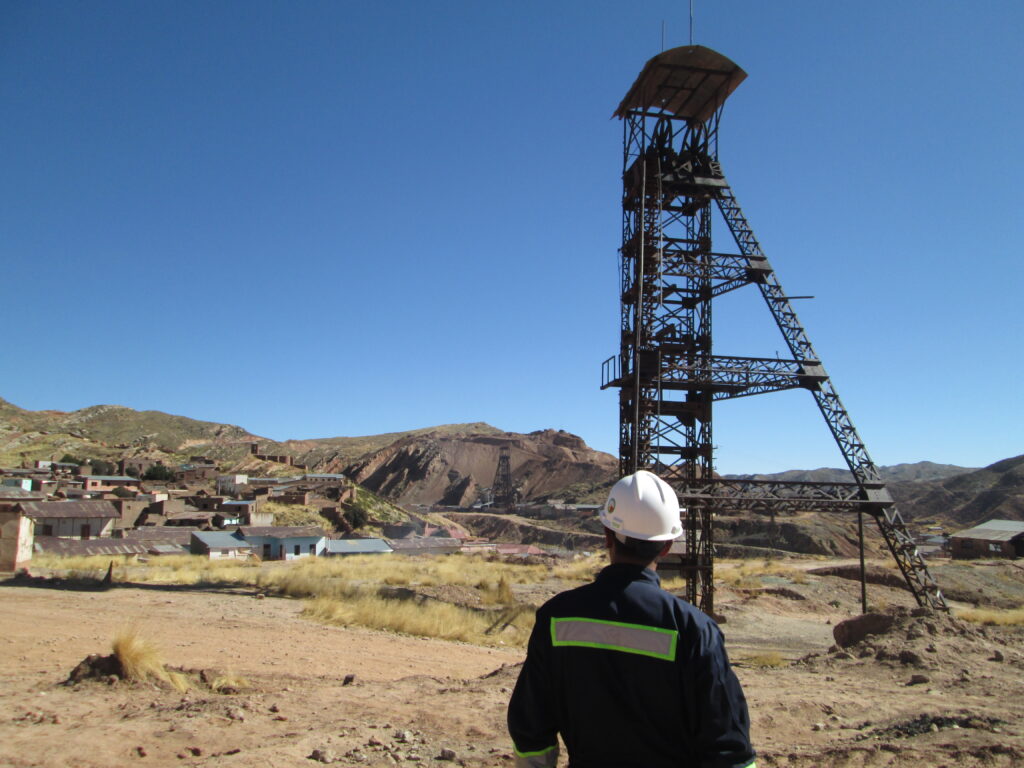
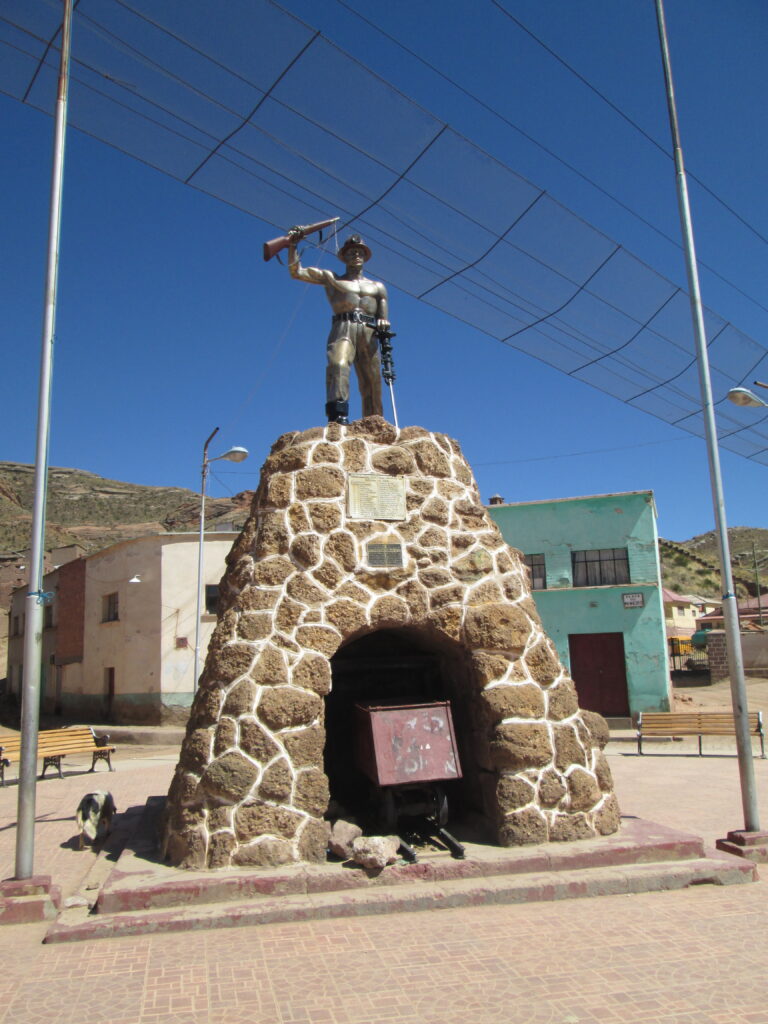
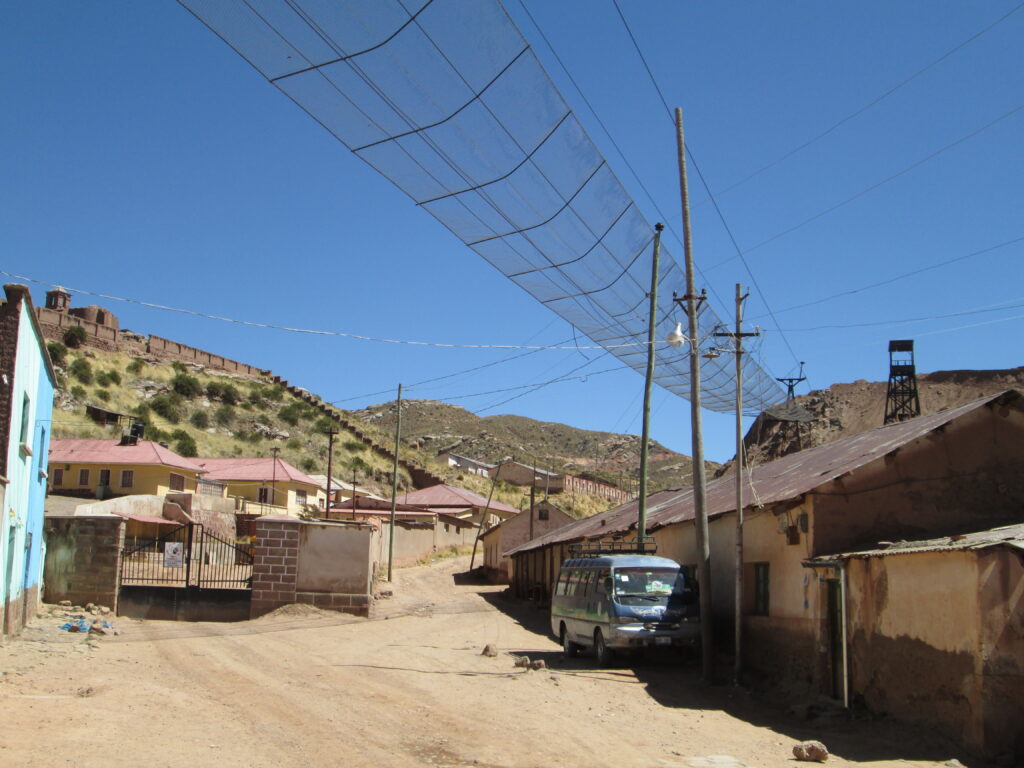
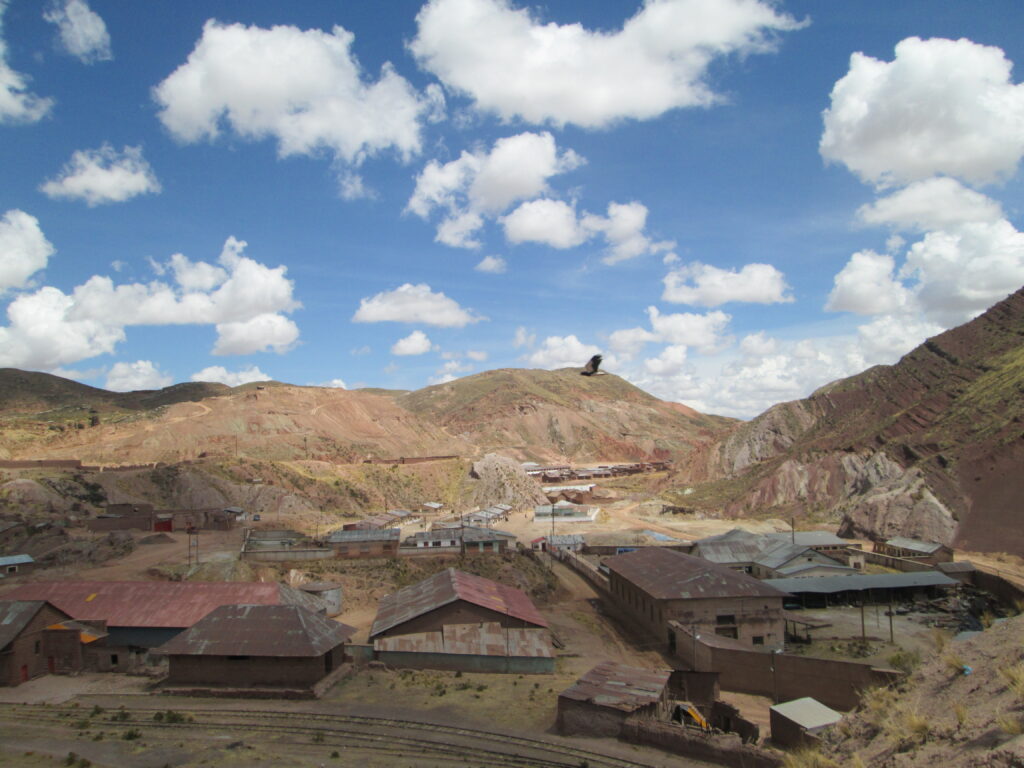
We thank Elena McGrath for providing these sources.
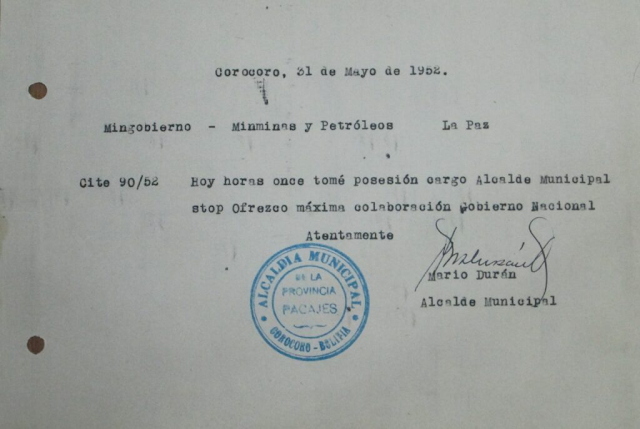

Comentarios
Publicar un comentario